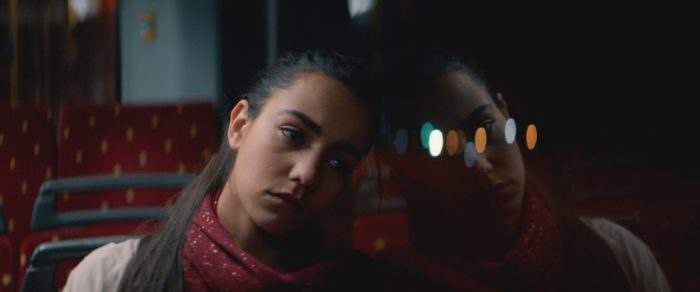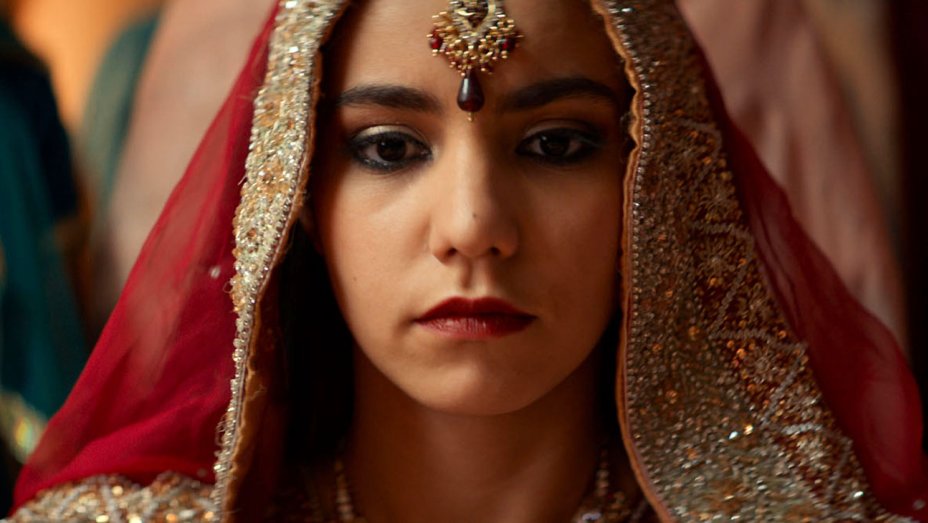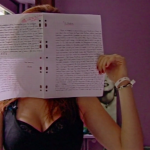Director: Stephan Streker
MyFrenchFilmFestival review
A disquieting tale of clashing values and cultural tradition, Stephan Streker’s A Wedding (aka Noces) harbours an underlying fatalism that grants anxious mood and purpose to even the most mundane moments in the life of Zahira, a young woman pressured by her Pakistani family into an arranged marriage. Though the drama finds an escalating pattern of crescendos from its central conflict, it is through nerve-racking inaction that the film truly maintains its grip as Zahira finds herself slowly sinking into a life and an identity that every inch of her wishes to resist.
The opening shot of A Wedding quickly establishes the endearing nuances of Lina El Arabi’s performance that will prove key in telling this story. As Zahira, she appears assertive and self-possessed but her introductory close-up reveals signs of an internal unease and youthful vulnerability as she discusses her options for an abortion. This unwanted pregnancy is the first of two ticking time bombs that Streker introduces in the film’s first twenty minutes, the other emerging when Zahira sits down with her family who presumptuously present her with three potential Pakistani husbands to choose from. In an ironic case of tradition adapting to technology, Zahira is able to Skype with each of her pre-approved suitors before she makes her final decision.
Despite these unwelcome developments, Zahira initially persists with her normal life outside the family home. Her best friend Aurore advises that she buys some time by going along with her parents’ plans, the assumption being that she’ll find a way to get out of this mess somewhere down the line. The two of them joke about Zahira’s situation and make fun of the three suitors but gradually the reality of her dilemma sinks in. With every pensive conversation, unsuccessful negotiation and private confession, Zahira’s window of escape narrows just a little more.

The film draws much of its claustrophobic panic from the inflexibility of Zahira’s family as her bold refusal to marry provokes destructive feelings of cognitive dissonance. An unsettling early highlight comes when Zahira’s mother responds to her defiance by explaining in practical terms why she must marry one of the suitors. “I don’t understand. You told me that Adnan was very nice. You said he was kind to you,” Zahira’s mother reminds her with an implicit sense of urgency, “He’s the only one who speaks French.” The unstable father seems equally incapable of seeing beyond the three-option framework imposed on their daughter, suggesting potentially dangerous consequences if Zahira doesn’t comply.
Yet as much as Streker may disagree with the box Zahira’s family is putting her in, the director wisely refrains from outright villainising his characters. Some of the film’s most tenderly sad moments are those in which Zahira exhibits sympathy towards her family’s plight and demonstrates an understanding of what her parents have to lose in their culture if the wedding does not go ahead. Despite internalising many western values, she maintains some traditions and shows a profound love and respect for her family, even if this emotional connection makes her situation all the more difficult.
While Streker’s direction remains proficient to the end, the film loses some of its emotional richness in the last half hour. This climactic stretch shows more concern for moving the story forward than in communicating any new ideas along the way, draining the film of much of its paralysing moral uncertainty (though its final scene remains suitably distressing). Nonetheless, Streker, El Arabi and the rest of the talented cast have, for the most part, created a quietly engrossing work that largely rejects sensationalism for the sake of slow-burning emotion, enveloping its lead in an oppressive narrative that, at its most effective, evokes a feeling akin to drowning in slow motion.





